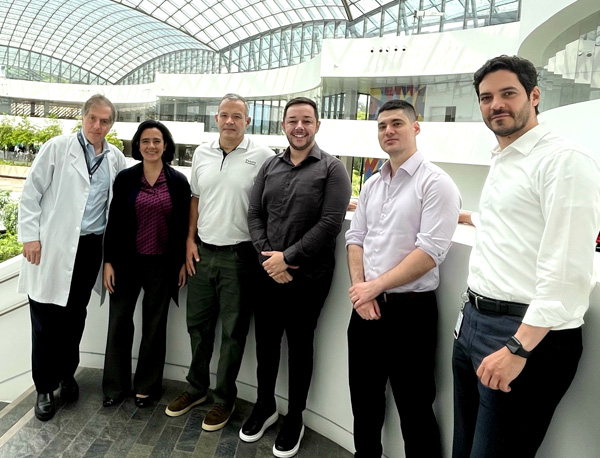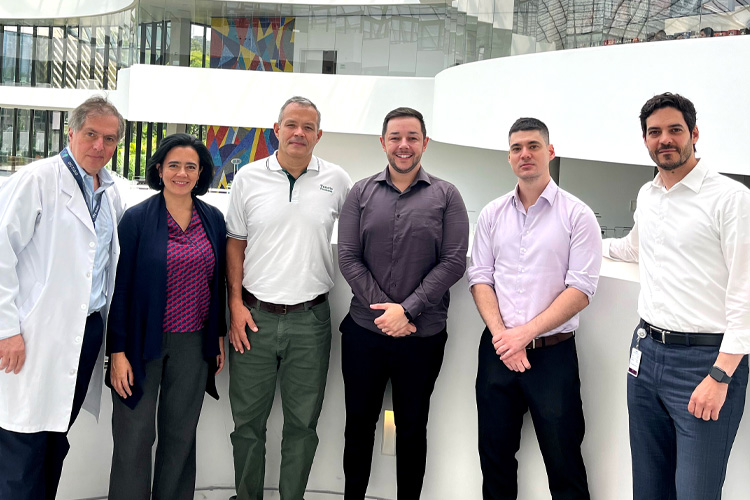Education Policy and Results: It’s (almost) All in the Implementation
Getting the right education policies into place is hard enough. But more often than not, implementation is where they fall apart. Let us share two striking findings. Find out!

The Bracell Foundation is supporting the Albert Einstein Israelite Hospital in its first edition of the Surgery Fellowship Program. The health organization launched, in July this year, through its Center for Studies and Promotion of Health Policies (CEPPS) and the Vascular Surgery area, in collaboration with the Global Surgery Policy Unit (London School of Economics – LSE and Royal College of Surgeons of England), its first research program focused on surgeries, from a public policy perspective.
The initiative aims to contribute to the production of knowledge in the area of surgical care of the Unified Health System (SUS) and, thus, support recommendations, discussions, and changes in public health policies with managers and decision-makers. To this end, it seeks to develop research based on and grounded in evidence and real-world data, in all its stages, ensuring the participation of relevant actors both from the care perspective and the health system management perspective.
Through a public call, masters and doctors in health sciences, economics, social sciences, epidemiology, public/collective health, public policies, public administration, law, and other related areas were invited to participate.

According to Eduardo de Campos Queiroz, CEO of the Bracell Foundation, the initiative is in line with the organization’s third pillar of action, “Leadership Development,” through which it seeks to invest in initiatives committed to finding solutions to inequality challenges and implementing effective public policies.
“This is an opportunity to contribute to the expansion of knowledge about the determinants of success in surgical procedures with the aim of promoting equity in access and effectiveness of procedures in Brazil, helping to transform public and private health,” says Eduardo.
According to Nelson Wolosker, professor, vascular and endovascular surgeon, and vice president of Research and Innovation at Einstein, the Fellowship program was developed from the hospital’s experience with the Einstein Surgery Observatory, which collected and organized data from 2009 to 2023 on surgical procedures performed in the SUS.
“We created the Observatory with the aim of changing the way information is organized and used in the country. We analyzed volume, investments, associated mortality, and patient displacements, using public data bases, notably the Hospital Information System (SIH) and SIGTAP/SUS. The results have guided studies in various therapeutic areas, in aspects related to access, quality, cost-effectiveness of services provided, and equity,” he details.
The Surgery Fellowship will have a committee that will monitor the researchers’ progress and the results of their activities. For the participants (fellows), the initiative provides full-time dedication and offers a monthly scholarship. Face-to-face meetings with public managers and strategic actors and a week of immersion in England are planned. Check out the scheduled activities:
Francisco Tustumi: Surgeon, graduated in medicine from the Faculty of Medicine of the University of São Paulo (FMUSP), residency in general surgery (2013-2015) and residency in digestive system surgery (2015-2017) at the Hospital das Clínicas FMUSP, and preceptor in digestive system surgery at the same institution (2017-2018).
Felipe Mendes Delpino: Nutritionist and researcher, holds a master’s and doctorate in Public Health with an emphasis on Machine Learning. He has an MBA in data science and is a postdoctoral fellow in Machine Learning. He is a specialist in systematic review and meta-analysis, and in data analysis with Python, R, and Stata.
01
Jul
Getting the right education policies into place is hard enough. But more often than not, implementation is where they fall apart. Let us share two striking findings. Find out!
23
Oct
The initiative, carried out in collaboration with the London School of Economics, aims to promote equity in Brazilian public health.
28
Jun
During the Bracell Foundation Symposium, the importance of strengthening public policies, developing leadership and investing in the comprehensive training of children was highlighted.